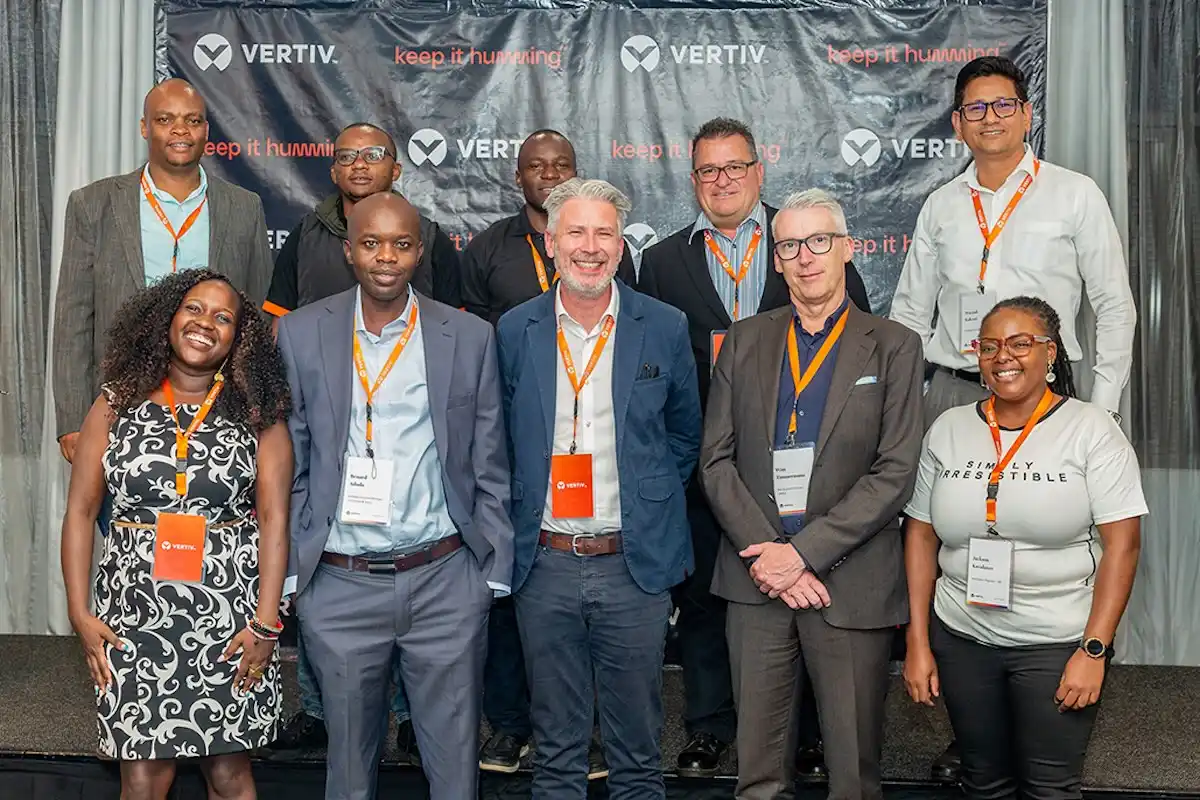Telecommunications and data centre providers around the world, and especially in Africa, face increasing challenges in meeting the demands driven by artificial intelligence (AI) and the rapidly changing technology landscape, which is impacting their infrastructure and services.
This is according to Jon Abbott, sales director for strategic telecom clients in EMEA at Vertiv, a global provider of critical digital infrastructure and continuity solutions, who recently addressed Kenyan leaders in the local telco, tower, and colocation arena in Nairobi. Abbott shared insights into the operational and technology changes that are set to reshape the entire communications networks landscape by 2030.
According to the 2023 Digital Quality of Life Index, a study on digital wellbeing across 92 percent of the world’s population, Kenya, which is ranked 76th overall of 121 countries globally and 3rd of 25 African countries across pillars that impact a population’s digital quality of life, drops to 82nd overall in terms of its AI readiness.
“The challenge for Kenya is that AI adoption is already transforming the IT stack and our IT infrastructures. This means that accelerated architectures are needed to meet the requirements of AI workloads,” Abbott said.
He pointed out that the tangible network developments required will include adjustments on the operational side that consumers don’t see. This is likely to include changes in network ownership and increased costs of service largely driven by ever increasing demands for energy consumption as intelligent connectivity rises.
“This will place a greater emphasis on efficiency, while more attention will also have to be paid to sustainability and emission reduction,” Abbott explained.
At the same time, significant technology changes are expected to take place, including a greater move to the edge of the network, which will drive big tech collaboration and increased standardisation across the physical and logical infrastructure – a complex undertaking. We can also anticipate more open-source groups and commoditised hardware; data processing capability integrated into the network fabric; and new ecosystems with more private networks.
“Then there’s the Internet of Things (IoT), which has the potential to unlock insights and efficiencies across all sectors. The way this will evolve will be to propagate the landscape with processing capability, breaking the facility down into smaller and smaller localised facilities,” he continued.
What will this mean for data centres?
According to Abbott, the data centre as we see it today will not disappear. Rather, they will continue to grow, but in parallel, more and smaller “edge” data centres will populate the landscape, each with the same fundamental physical requirements as their larger counterparts – always on, never getting too hot, which will place cooling systems under strain, and operating as efficiently and securely as possible.
“The challenges all this poses in terms of energy provision, particularly in the face of energy transition and sustainability requirements to meet the 2030 global emissions reduction goals, will be considerable,” he said.
Other hurdles to be overcome range from meeting the likely exponential growth in rack density and constraints on skills availability, to trade-offs between new builds and retrofits, power grid constraints, and an increasing need for short turn-around times as well as repeatable, quick-to-deploy designs.
“The bottom line is that AI will be a major challenge for network providers with data consumption and creation accelerating across all sectors, and data processing saturating the facility landscape. While this could be daunting for providers, having the right partner at your side – one that can assist with power and thermal management, and integrated rack solutions – every step of the way will help to smooth your deployment journey. Vertiv is well placed to be such a partner,” Abbott concluded.
Also Read: Vertiv Launches High-Density Prefabricated Modular Data Centre Solution

